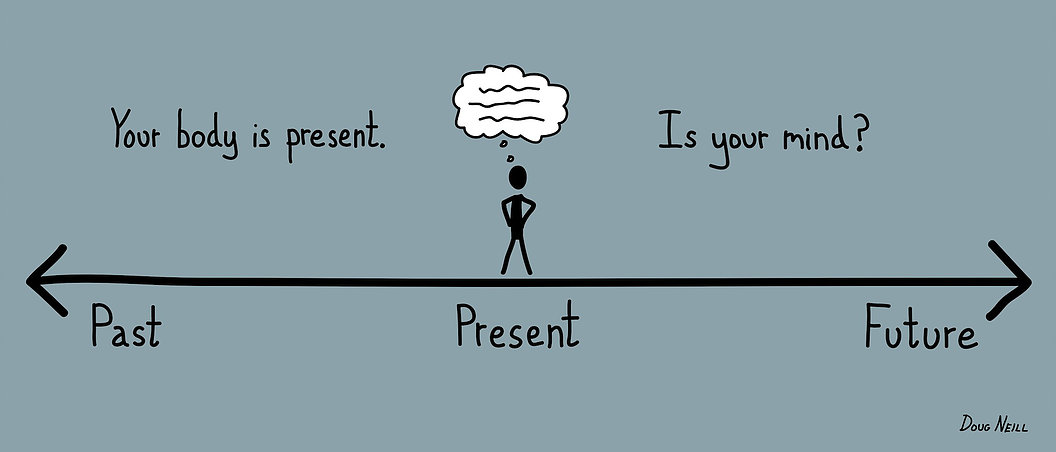The Importance of Mindfulness

Today, we are focusing on mindfulness. Now I know some of you are thinking “Mindfulness? Isn’t that for yoga nuts and Buddhist monks?” not exactly. Merriam-Webster dictionary defines mindfulness as: “the practice of maintaining a nonjudgmental state of heightened or complete awareness of one’s thoughts, emotions, or experiences.” To put it simply, mindfulness is about staying in the present moment and allowing the present to be as it is, without placing judgment on it.
How often do you find yourself thinking of the things you need to do? Or dwelling on past mistakes? This way of thinking is called Rumination. It is the tendency to dwell on the causes or consequences of one’s negative emotional experience. Rumination takes us out of the present, because instead of focusing on what’s occurring in the present we are thinking of all the things that stress us out. Rumination is one of the ways people can develop anxiety, depression, and other undesirable behaviors. And a way of combating rumination is to utilize mindfulness.
Mindfulness is simple to practice, what you’ll need to do is find a quiet place where you can relax. It is not necessary for there to be complete silence, just quite enough so that you’re not distracted by any noise. Once there, be seated comfortably, and focus on your breathing. Breathe in for a few seconds and then out for a few seconds, keeping your thoughts solely on your breath. This is what connects our body with our mind, and keeps us present. At first it will be difficult to get control of your thoughts, but as they say practice makes perfect. It is commonly assumed that one must mediate to practice mindfulness. Though, it is not necessary to meditate while practicing. As long as you keep a clear mind and maintain deep breathing, you can be observant of your surroundings. So if you’re outside, observe how the trees move in the wind or how the sun warms your body. Through continued practice it will become easier to maintain a clear mind and can even become a constant state of being.
I am sure many of you have doubts about trying this, but I strongly encourage that you do. Because studies are showing that people who practice mindfulness have better cognitive function. One study in particular, conducted at the Department of Psychiatry and Psychotherapy at the University of Marburg, in Marburg Germany, observed the difference in brain structure in those who practice mindfulness and those who do not. They found that those who practice mindfulness had more neural connections in areas of the brain that regulate emotion, memory, and daily functioning. You can check the study out here: http://journal.frontiersin.org/article/10.3389/fnagi.2015.00254/full.
Mindfulness is the act of maintaining a non-judgmental state and a heightened awareness of ones thoughts. It is commonly utilized during meditation, but as long as one maintains a clear mind and focuses on their breath, it can be done virtually anywhere. Not only does mindfulness combat rumination, but it can improve your cognitive functioning. All you need to do is sit back, relax, and breathe!



